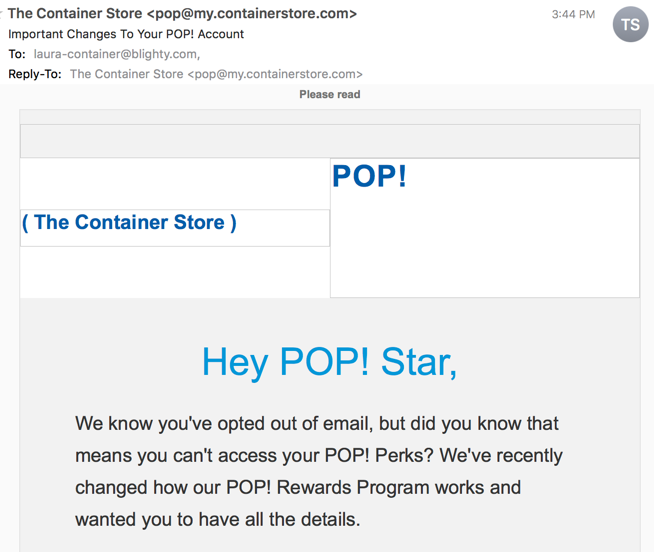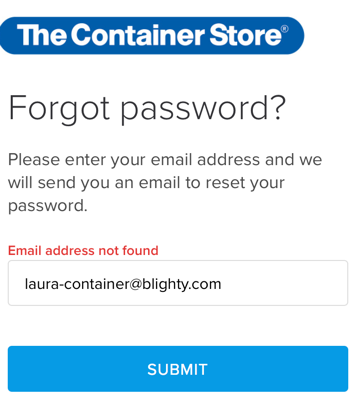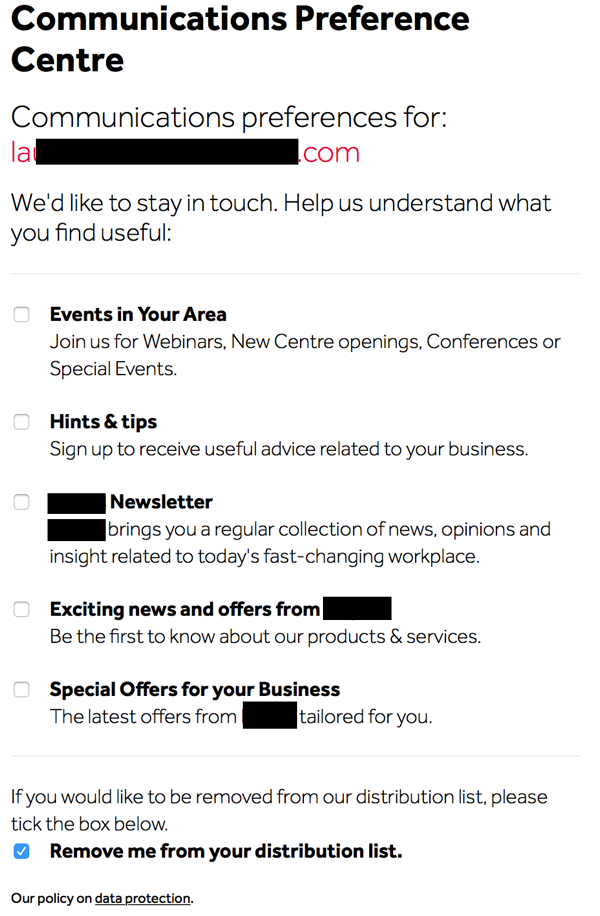Transactional mail can be spam
Marketers have a thing about transactional mail. In the US, transactional mail is exempt from many of the CAN SPAM regulations. If they label a mail transactional, then they can send it even when the recipient has opted-out! The smart marketer looks for opportunities to send transactional mail so they can bother spam get their brand in front of people who’ve opted out.

Enter the anniversary, birthday or holiday message. If a message is sent once per year and is based around some event, then it’s classified as transactional. But these messages aren’t really transactional. There’s nothing the recipient did. The only “transaction” is the passage of time.
These kind of fake transactional messages are just legal spam, particularly if the recipient has opted out of marketing mail.
I mentioned this on the email geeks slack channel, along with the comment that if companies were going to ignore preferences they should at least offer recipients something for reading their spam. One smart person pointed out that if the messages contained rewards, like a percentage off, then it’s not transactional mail any more and it’s a clear violation of CAN SPAM and other laws.
There are, of course, legitimate transactional messages. My favourite definition of transactional message is a message confirming or completing an action initiated by the recipient. The whole point of carving out transactional messages from CAN SPAM is for the recipient, not for the sender. Any truly transactional mail, therefore, must benefit the recipient more than the sender.
There are also cases where one time emails benefit the recipient, but are not generated due to a direct interaction by the recipient. One common case of this is messages alerting users that a particular product is back in stock. These messages are wanted by the user, and they benefit the user, but the timing of their send isn’t related to a user’s action. Timing is dictated by restocking timelines. In discussions with clients, I describe these types of messages as triggered rather than transactional.
Transactional mail must center the recipient. If a recipient has opted out from mail from a company, then they probably don’t want to receive marketing mail, even if the subject line is Happy Birthday or Happy Anniversary.


